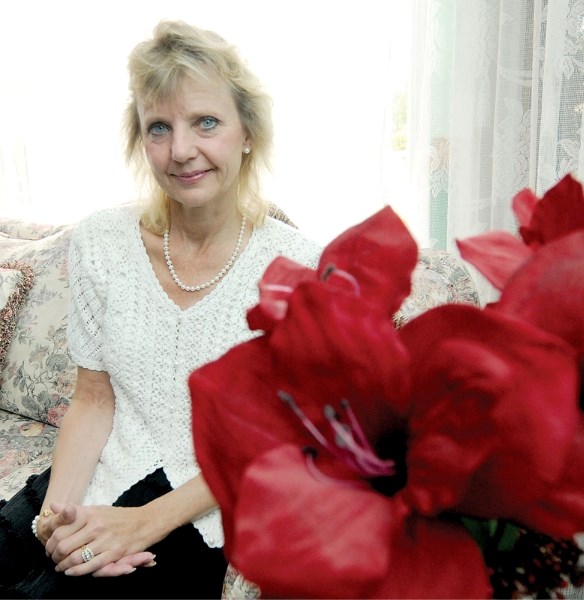A local woman who has received liberation therapy to treat her multiple sclerosis is giving a thumbs-up to the provincial government for taking another step in approving the treatment in Alberta.
Connie Beaudette, who lives in Deer Ridge, was diagnosed with MS about six years ago and, after seeing her overall health steadily decline, underwent the controversial therapy in Cabo San Lucas, Mexico, in July 2010.
She said the observational study launched by Health Minister Gene Zwozdesky in Calgary Wednesday is a worthwhile exercise in which she hopes all MS sufferers in the province partake so the therapy can be offered closer to home.
“[I would hope] that they would do it here in Canada so people who can’t afford travel can have it done here,” she said. “It cost us a lot and I believe in it. I believe that it’s not placebo; it really works.”
There have been rumblings that some MS patients would not take part in the survey because of their anger towards the provincial government’s foot-dragging in getting liberation therapy approved.
But Beaudette, who turns 55 in August, said that would only be counterproductive and any delays in getting the therapy could cost patients dearly when it comes to quality of life.
“I did really well because I wasn’t in a [wheelchair] or using a walker,” she said. “If these people wait, it’s not as good.”
Still, she said, the government’s slow progress is a bit frustrating.
“It’s not a big deal. If my husband had a problem with his heart, they would do angioplasty. Just because it’s MS, [they are hesitant]. It wasn’t life threatening. And I saw improvement immediately,” she said.
Liberation therapy involves either inflating tiny balloons or inserting stents in veins in the patient’s neck with the intent of unblocking or untwisting them. This condition, known as chronic cerebrospinal venous insufficiency (CCVSI), is thought to be one of the primary causes of MS according to the research of Dr. Paolo Zamboni at the University of Ferrara in northern Italy.
Two Canadians have died after receiving liberation therapy outside of Canada — a 35-year-old man from Niagara Falls, Ont. and a 56-year-old woman from Calgary — but Beaudette thinks those cases might have been different from hers and other success stories.
“Maybe they were too far along or maybe they were on [MS] drugs,” she said. “My neurologist said drugs wouldn’t work for me, so I’ve never been on one.”
Since undergoing her treatment nearly a year ago, Beaudette said she has noticed some marked differences.
“Now my balance is great — I can shower and I don’t feel like I’m going to fall,” she said, noting that she fell last May, breaking a bone in her arm in three places and requiring a titanium plate and three screws.
Before she developed MS, Beaudette said, she sang in the Singing Christmas Tree in Edmonton and “talked fast.” While those parts of her life might never be the same, there is at least one modest goal she hopes to achieve.
“I wore high heels, and hopefully I can do that again,” she said.




